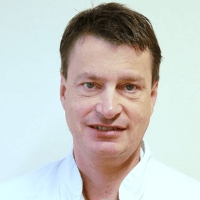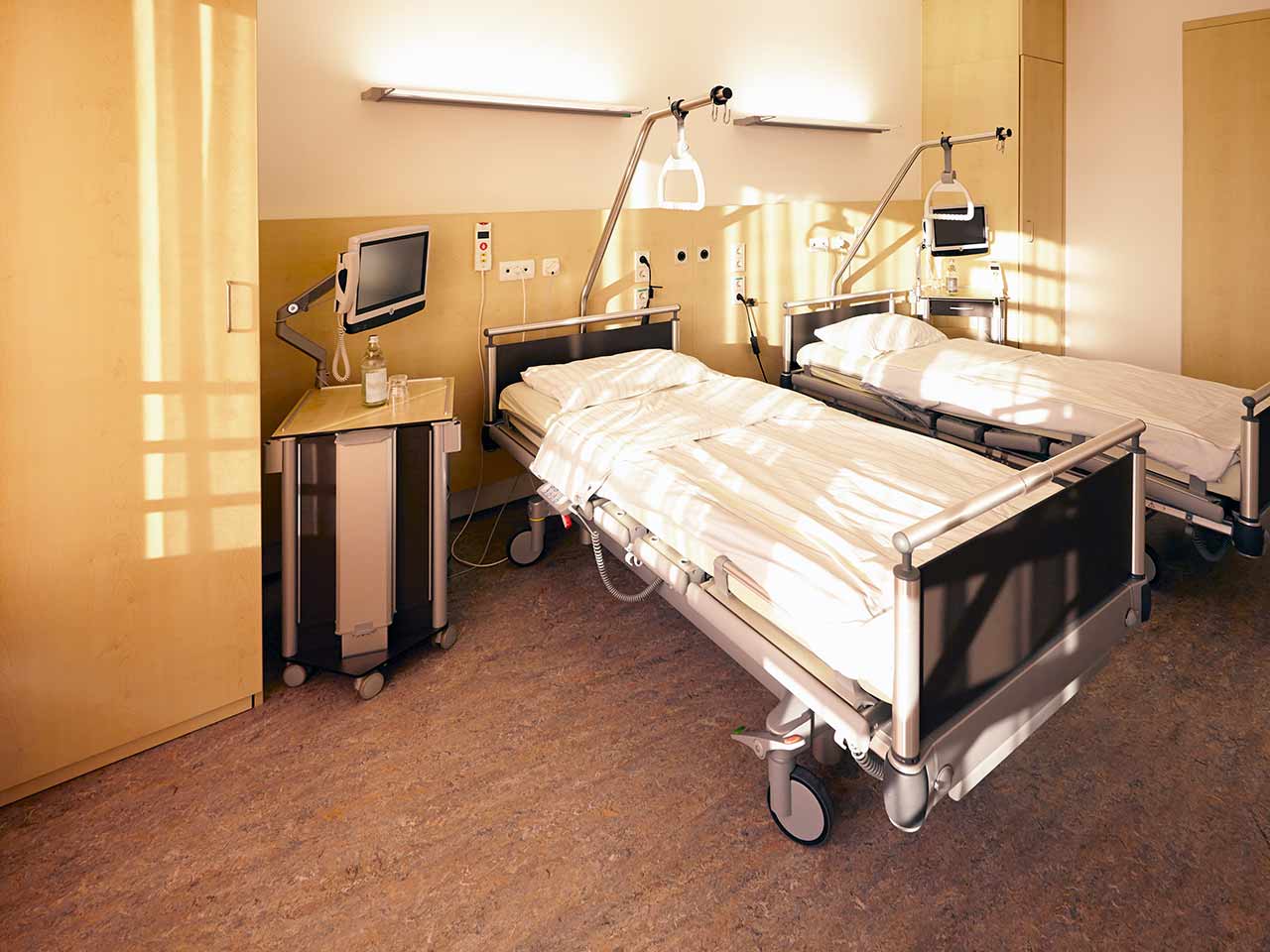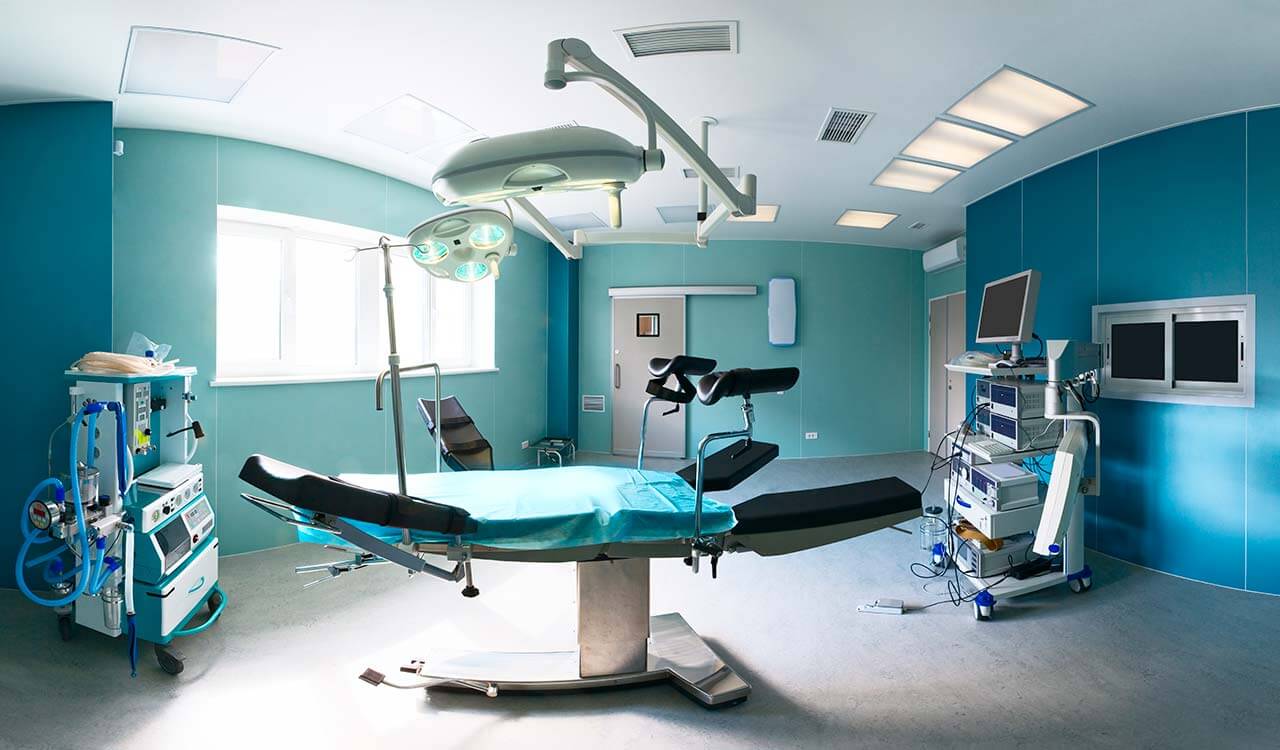
The program includes:
- Initial presentation in the clinic
- clinical history taking
- physical examination
- review of medical records
- laboratory tests:
- complete blood count
- biochemical analysis of blood
- TSH, fT3, fT4
- indicators of inflammation (CRP, ESR)
- indicators blood coagulation
- otorhinolaryngological examination:
- rhinoscopy
- otoscopy
- audiometry
- x-ray/ ultrasound/ CT of paranasal sinuses
- microbiological examination of nasal fluid
- preparation according to preoperative standard
- ethmoidectomy
- nursing services
- consultation of related specialists
- treatment by chief physician and all leading experts
- explanation of individual treatment plan
- written statement
Required documents
- Medical records
- CT scan (if available)
Service
You may also book:
 BookingHealth Price from:
BookingHealth Price from:
About the department
The Department of Adult and Pediatric Otolaryngology at the Helios Hospital Hildesheim offers diagnostics and treatment of the full range of ENT diseases. Medical services are provided to patients of all ages, including children. The department performs modern surgery to improve hearing, including the placement of implantable hearing aids and cochlear implantation. An important clinical focus of the medical facility is also the treatment of benign and malignant head and neck tumors: neoplasms of the larynx, throat, oral cavity, nasal cavity, paranasal sinuses, etc. With appropriate clinical indications, the department's surgeons perform aesthetic plastic surgery in order to restore an attractive aesthetic appearance of the face after the treatment of a certain ENT disease. The department mostly performs surgery to repair scars, defects after tumor removal, nose reshaping surgery and facelift in case of facial nerve paralysis. The department's therapeutic offer also includes sparing laser surgery. The Chief Physician of the department is Prof. Dr. med. Burkard Schwab.
Many patients come to the department hoping to restore hearing that may be impaired due to chronic suppurative otitis media, middle ear effusion, congenital damage to the structure of the inner ear, inner ear ossification, ear tumors and other pathological changes. In most cases, surgery is the most effective treatment for hearing loss. The department's otolaryngologists perform microsurgical procedures to replace the auditory ossicles with titanium prostheses or autologous cartilaginous tissues, surgery to eliminate chronic ear inflammations, cholesteatoma removal surgery, laser surgery for otosclerosis and other surgical procedures. The operations are performed using innovative computer-assisted navigation. Prior to the intervention, the patient undergoes CT and/or MRI scanning in order to obtain accurate images of the surgical field in various projections. Thus, the patients with hearing loss are guaranteed not only high efficiency of treatment, but also its safety.
The patients suffering from severe forms of hearing loss (sensorineural hearing loss, conductive or mixed hearing loss) can restore hearing by the placement of implantable hearing aids or cochlear implantation. The surgical interventions of this spectrum are prescribed when conventional hearing aids do not provide the patient with a decent hearing quality. The team of the department's doctors carries out comprehensive diagnostics, which serves as the basis for determining the severity of the hearing loss and the optimal type of hearing aid – a partially/fully implantable hearing aid or a middle ear prosthesis (cochlear implant). Cochlear implantation can be performed in both adults and children. The department's specialists have vast experience in performing these specialized surgical interventions, so the patients can count on the best possible treatment outcome.
The treatment of nasal and paranasal sinus diseases is also within the competence of the department's otolaryngologists. The most common pathologies in this area include chronic inflammation, nasal polyps and cysts. The first-line treatment is drug therapy, but if it is ineffective, the specialists resort to endoscopic surgical interventions. With appropriate clinical indications, nasal and paranasal sinus surgery is also performed using state-of-the-art laser systems characterized by high accuracy and minimal traumatization.
An integral part of the department's clinical practice is the treatment of head and neck tumors. Laryngeal tumors are the most common. The malignant diseases of this spectrum are diagnosed and treated in close cooperation with oncologists and radiation therapists. The department offers various diagnostic examinations to detect a tumor, determine its size and localization. These include endoscopic diagnostic procedures, ultrasound scanning, computed tomography, magnetic resonance imaging, etc. At the stage of planning treatment tactics, the department's doctors pay attention not only to the effectiveness of therapy, but also to the preservation of important functions (voice, swallowing). During the operation, the surgeon removes the entire tumor, and the affected cervical lymph nodes, if possible. The department's surgeons prefer sparing minimally invasive surgical techniques. Small tumors can be removed using a CO2 laser, which is extremely accurate and eliminates the development of profuse bleeding. Whenever required, tumor removal surgery can be followed by plastic repair. The surgical treatment is usually complemented by radiation therapy, the optimal type of which is selected individually for each patient.
The specialists in pediatric otolaryngology admit young patients under the age of 18. The department's otolaryngologists have long experience in the treatment of enlarged tonsils, middle ear effusion, tonsillitis, congenital ENT malformations, neck cysts and other ENT diseases. The therapeutic options include both conservative and surgical techniques. The treatment regimen is developed individually for each child.
The department's main clinical focuses include:
- Surgical and conservative treatment of head and neck tumors
- Head and neck laser surgery
- Laryngeal surgery using high-frequency jet ventilation
- Surgical treatment of tracheal tumors and stenoses
- Microscopic interventions for salivary gland diseases using neuromonitoring
- Microscopic and endoscopic interventions for nasal and paranasal sinus diseases
- ENT computer-assisted navigation surgery
- Aesthetic and reconstructive plastic surgery in the head and neck
- Middle ear surgery
- Hearing improvement surgery
- Cholesteatoma surgery
- Otosclerosis surgery
- Placement of implantable hearing aids and cochlear implantation (including in children)
- Treatment of ENT diseases in children
- Adenotomy
- Tonsillectomy
- Paracentesis (surgical incision in the eardrum)
- Drainage of the tympanic cavity
- Other medical services
Curriculum vitae
Higher Education and Professional Career
- 1986 - 1992 Study of Human Medicine, Faculty of Medicine, University of Wuerzburg.
- 1993 - 1994 Internship, Department of Otolaryngology, Charite University Hospital Berlin.
- 1994 - 1995 Assistant Physician, Department of Otolaryngology, Charite University Hospital Berlin.
- 1995 - 1997 Work in the Department of Otolaryngology, Hannover Medical School.
- 1997 Board certification in Otolaryngology.
- 1999 - 2004 Senior Physician, Department of Otolaryngology, Hannover Medical School.
- 2004 - 2015 Managing Senior Physician, Department of Otolaryngology, Hannover Medical School.
- 2006 Habilitation in Otolaryngology, Hannover Medical School.
- 2011 Extraordinary Professorship.
- Since November 2015 Chief Physician of the Department of Adult and Pediatric Otolaryngology at the Helios Hospital Hildesheim.
Teaching Career
- Lecturer at the Hannover Medical School.
Photo of the doctor: (c) Helios Kliniken GmbH
About hospital
The Helios Hospital Hildesheim positions itself as an advanced provider of high-quality medical services at the European level. The medical facility is an Academic Hospital of the Hannover Medical School, thanks to which it can successfully introduce the very latest medical achievements into clinical practice. The hospital is distinguished by the excellent quality of diagnostics, highly effective treatment of pathologies of any severity and the best patient care based on understanding and humane attitude. The history of the medical complex dates back to 1838, so it carefully honors traditions, but at the same time the hospital actively uses innovative diagnostic and treatment methods. The medical team of the hospital consists of more than 1,450 people. The hospital employs highly qualified doctors who are rightfully proud of their treatment outcomes.
The medical facility has 579 beds. The team of doctors working at the hospital treats more than 28,000 inpatients and about 80,000 outpatients every year. The patients from foreign countries often undergo diagnostics and treatment in the hospital, which confirms the excellent reputation of the medical center in the international arena.
The hospital offers highly specialized departments with different medical focuses, including oncology, cardiology, gastroenterology, gynecology, dermatology, otolaryngology, general and abdominal surgery, plastic and aesthetic surgery, traumatology, etc. Many medical fields are awarded with prestigious certificates, including German Cancer Society (DKG) certification, IQM certification, and others.
Photo: (с) depositphotos
Accommodation in hospital
Patients rooms
The patients of the Helios Hospital Hildesheim live in spacious and light rooms. The furnishings of a standard patient room includes an automatically adjustable bed with an orthopedic mattress, a bedside table, and a wardrobe for storing things. All patient rooms have telephone, radio and TV, as well as free Wi-Fi. For maximum convenience of patients, each room has an ensuite bathroom with shower and toilet.
If desired, the patient can stay in an enhanced-comfort room. Such rooms are distinguished by a more sophisticated design, and are additionally equipped with a safe, a minifridge and upholstered furniture.
Meals and Menus
The patients of the hospital are offered tasty and varied meals. Diet and vegetarian menus are also available. If the patient follows a special diet recommended by the attending physician, he will be provided with food cooked from approved products.
Breakfast is served buffet style: eggs, various types of cheese, sausage, buns, jam, vegetables. There are three set menus to choose from for lunch. Dinner is also served buffet style.
In addition, the hospital has a cozy cafe called Leckeria where one can have a delicious snack. The range of dishes includes light salads, hearty set meals, snacks, sandwiches, cakes, as well as tea, coffee and soft drinks. The terrace is open in the summertime.
Further details
Standard rooms include:
Television
All patient rooms have a TV set. The TV can be used with headphones – the patients can use their own headphones or ask for the headphones from the staff.
Religion
The patient can talk with a Christian priest at any time. Divine services are held every Sunday at 10 am (on the ground floor).
Other religious services are available upon request.
Accompanying person
During the inpatient program, the accompanying person can stay with the patient in a patient room or at a hotel of his choice. Our managers will help you choose the most suitable option.
Hotel
During the outpatient program, the patient can stay at a hotel of his choice. Our managers will help you choose the most suitable option.




